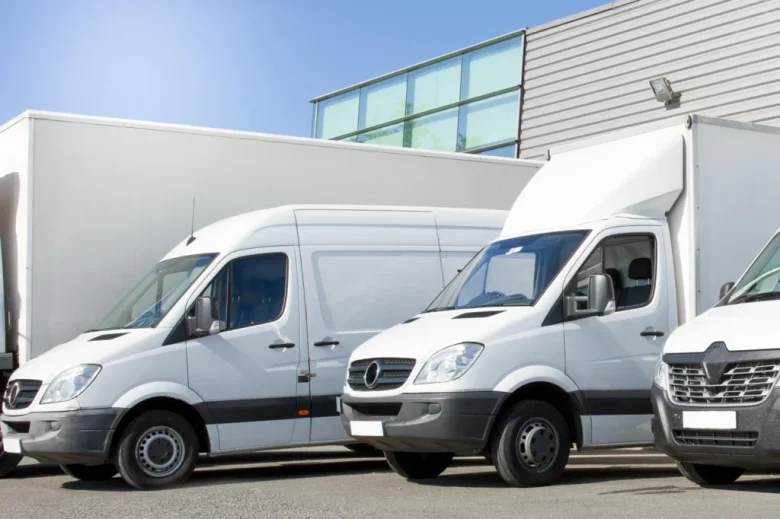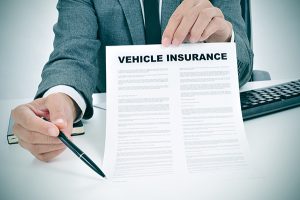Fleet insurance is designed to help businesses with more than one vehicle by providing coverage for more vehicles. This can make managing your insurance policy easier and save you money. For small businesses that rely on vehicles for deliveries, service calls, and other business needs, it’s important to understand the cost of fleet insurance. This information can help business owners make informed decisions, protect their assets, and ensure they’re legally compliant. It can also help you spend and plan your finances by knowing how much fleet insurance typically costs.
1. Factors That Affect Fleet Insurance Costs
The cost of fleet insurance for a small business depends on many factors. The number of vehicles in the fleet, the types of vehicles insured, and how those vehicles are used are the most important factors. For example, a fleet of heavy-duty trucks used for work may have higher insurance rates than a fleet of cars used for business purposes. Another important factor in calculating insurance costs is the driving habits of the employees who use those vehicles. A clean record can mean lower premiums, while past accidents or claims can lead to higher costs.
2. Average Costs of Fleet Insurance
It’s difficult to give an exact price for fleet insurance due to the many factors involved, but small businesses can expect to pay an average of around $1,000 to $3,000 per vehicle per year. Fleet details and coverage options chosen can make this range very different. For example, a company with a large fleet may receive a discount on the total cost of each vehicle. On the other hand, smaller fleets with higher-risk vehicles may have a higher price.
3. Understanding Coverage Types and Their Costs
The cost of fleet insurance also depends on the type of insurance chosen. Basic liability coverage is generally cheaper, but may not be enough to protect a business that relies heavily on its vehicles. Comprehensive coverage protects against theft, vandalism, and other non-accident issues that can significantly increase the price. Businesses can also choose to add additional coverage, such as rental reimbursement or roadside assistance, which can further increase or decrease the total cost of coverage. Therefore, business owners should carefully consider how much coverage they need and plan their budget appropriately.
4. How Vehicle Usage Affects Insurance Premiums
Fleet insurance rates can vary significantly depending on how the vehicle is used. For example, people often consider vehicles that are driven long distances or frequently on the road to be more dangerous than vehicles that are only used occasionally. Vans that operate in cities may be more prone to accidents than vehicles that operate in rural areas. Insurers study these usage patterns to determine how likely someone is to file a claim, which changes premium prices. Therefore, to ensure that the company gets a fair quote, they must be honest about how the vehicle will be used.
5. The Impact of Employee Driving Records
Another important factor in determining the price of fleet insurance is the driving record of each employee. Insurance companies often look at the driving record of everyone who will be driving the company’s vehicles. Companies can often get lower insurance rates for their drivers if they have a clean record and few or no accidents. On the other hand, if more than one driver has violations, such as speeding or accidents, insurance costs can increase significantly. Therefore, business owners should develop driver education and safety programs to encourage better driving habits, which can help reduce costs.
6. Ability to Save Money and Receive Discounts
Small businesses can get many offers from insurance companies to help them lower the cost of insuring their fleet. Some of these discounts include multi-vehicle discounts for covering more than one vehicle on a single policy, safe driver discounts for drivers with a good driving record, and discounts for purchasing different types of insurance from the same company, such as liability and property insurance. Some insurance companies also offer discounts for taking safety measures, such as installing telematics systems that track driver behavior. Taking the time to research and ask for offers can save you a lot of money.
7. Shop Around for the Best Insurance Rates
Small business owners who want to find cheap fleet insurance should get quotes from multiple insurance companies. Different insurance companies use different screening criteria, which can result in different prices for similar types of insurance. Getting quotes from at least three to five different companies can help business owners learn more about the market and make a more informed choice. It’s also a good idea to find an insurance company that specializes in commercial fleet insurance. These companies may have a better understanding of the issues that small businesses face.
8. Ask an Insurance Agent for Help
Working with an insurance broker can be helpful for small business owners who may be feeling stressed by the process of getting insurance. Brokers can provide personalized help to businesses by looking at their specific needs, helping them find good insurance options, and comparing quotes from different insurance companies. They can also help you understand the ins and outs of your fleet insurance and negotiate on your behalf to get the best price for your business. These tips are especially helpful for people who are new to truck insurance.
Conclusion
Small businesses that need more than one vehicle to operate smoothly should consider fleet insurance. To find affordable coverage, you should understand the different factors that affect the cost, research your coverage options, and actively seek out discounts. Small business owners can get the protection they need from fleet insurance by regularly reviewing their policies, spending money on security measures, and considering seeking help from an insurance broker. Ultimately, choosing the right fleet insurance can improve operational efficiency, protect critical assets, and help your business achieve long-term success.
FAQs
1. If the business has auto insurance, how often should the policy be reviewed?
Businesses should review their fleet insurance coverage at least annually or whenever significant changes occur to the fleet, such as when vehicles are added or removed, when employee driving records change, or when vehicle usage patterns change.
2. Does fleet insurance cover vehicles that are still in use for personal reasons?
Typically, fleet insurance is designed for business purposes. However, some plans may also cover certain personal uses. Business owners should check with their insurance company to see if their fleet insurance covers personal use.
3. What should the business do if a claim is made?
If a business needs to file a claim, it should immediately call the insurance company to report the incident, provide the necessary documentation, and follow the insurance company’s claims process to ensure everything goes smoothly.
4. What does a small business need to do to get fleet insurance?
Different insurance companies have different requirements, but generally, you must have a certain number of vehicles (usually three or more) and provide a lot of information about the vehicles, drivers, and how your business operates in order to get fleet insurance.
5. Why is it a good idea to work with an insurance broker to get fleet insurance?
Small business owners can get personalized help from an insurance broker in the complex world of fleet insurance. Brokers can also compare quotes from multiple insurance companies and negotiate on your business’s behalf to find the best coverage option at the most affordable price.




